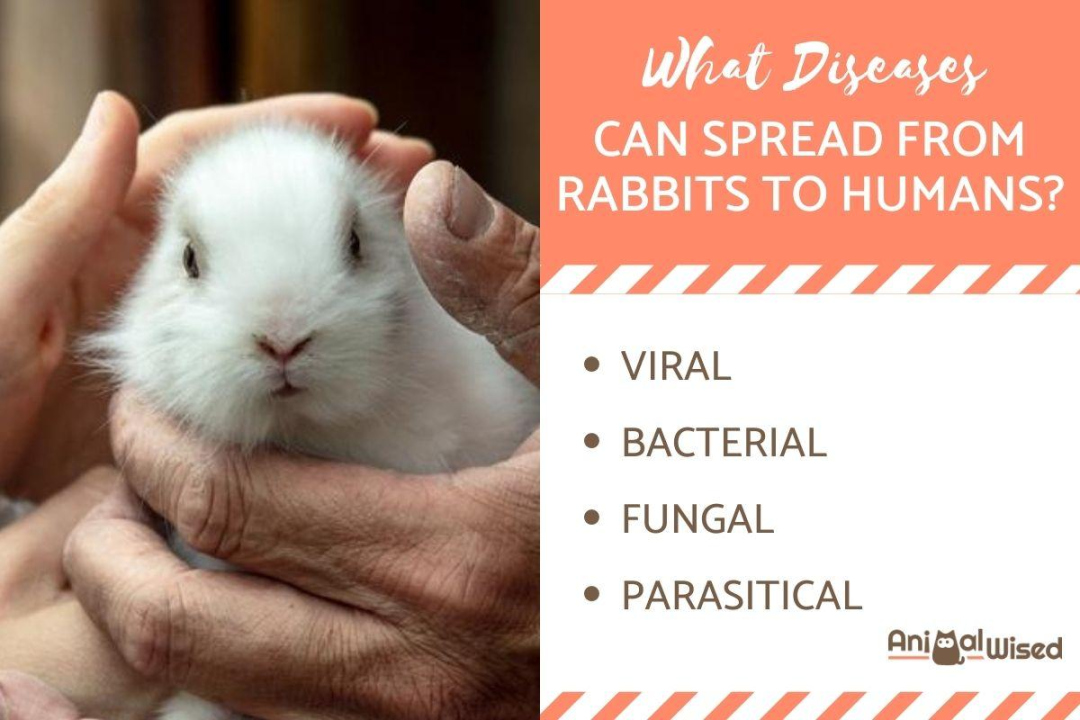Can Rabbits Transmit Diseases to Humans?
Rabbits are furry and adorable creatures that are popular as both pets and wild animals. While they can make wonderful companions, it is important to be aware that rabbits can transmit certain diseases to humans. Understanding the potential risks and taking necessary precautions can help minimize the chances of contracting a disease from a rabbit.

1. Zoonotic Diseases
Zoonotic diseases are those that can be transmitted between animals and humans. Rabbits can carry several zoonotic diseases, including:
- Tularemia: Also known as rabbit fever, this bacterial infection can be transmitted to humans through the handling of infected rabbits or exposure to their urine or feces. Symptoms may include fever, swollen lymph nodes, and respiratory issues.
- Salmonella: Rabbits can carry Salmonella bacteria, which can cause diarrhea, fever, and abdominal cramps in humans. Transmission occurs through direct contact or consumption of contaminated food or water.
- Ringworm: This fungal infection can be transmitted from rabbits to humans through direct contact. It can cause itchy, red, and scaly skin patches in humans.
- Giardia: Rabbits can carry the Giardia parasite, which can cause gastrointestinal symptoms, such as diarrhea and abdominal pain, in humans. Transmission occurs through contact with contaminated feces or water.
2. Preventive Measures
To minimize the risk of contracting diseases from rabbits, it is important to take certain preventive measures:
- Practice good hygiene: Wash your hands thoroughly with soap and water after handling rabbits or cleaning their cages. This can help reduce the chances of transmitting any potential pathogens.
- Avoid direct contact with rabbit feces: Wear gloves and use proper protective measures when cleaning the rabbit’s living area to avoid exposure to any potential pathogens present in their feces.
- Keep living areas clean: Regularly clean and disinfect your rabbit’s living quarters to minimize the risk of disease transmission. This includes cleaning cages, litter boxes, and accessories.
- Ensure proper nutrition and veterinary care: A well-nourished and healthy rabbit is less likely to carry diseases. Provide a balanced diet and regular veterinary check-ups to ensure the overall health of your rabbit.
3. Understanding Transmission
It is important to understand how diseases can be transmitted from rabbits to humans:
- Diseases can be transmitted through direct contact with rabbits or their bodily fluids, such as urine or feces. Ingesting contaminated food or water and inhaling airborne particles can also lead to disease transmission. It is crucial to take necessary precautions and maintain good hygiene practices to reduce the risk of contracting any potential diseases.
Frequently Asked Questions (FAQs)
Can I get sick if I have a pet rabbit?
While the risk exists, it is generally low. Following proper hygiene practices and taking necessary preventive measures can significantly reduce the chances of contracting diseases from a pet rabbit.
How can I protect myself from zoonotic diseases carried by rabbits?
You can protect yourself by practicing good hygiene, which includes regular handwashing, avoiding direct contact with rabbit feces, and keeping living areas clean. Additionally, providing proper nutrition and veterinary care for your rabbit can help maintain their overall health and reduce the risk of disease transmission.
Can I still cuddle and play with my pet rabbit?
Yes, you can still cuddle and play with your pet rabbit. Just make sure to wash your hands thoroughly afterward to minimize the risk of disease transmission.
Are all rabbits carriers of zoonotic diseases?
While all rabbits have the potential to carry zoonotic diseases, the risk varies. Proper care, nutrition, and regular veterinary check-ups can help reduce the risk of disease transmission. It is important to be cautious and take necessary preventive measures regardless of the rabbit’s health status.
Related Articles…
Copyright Notice:
The images displayed here are sourced from the internet, with copyrights held by respective owners. For removal of any copyrighted image, please email us.